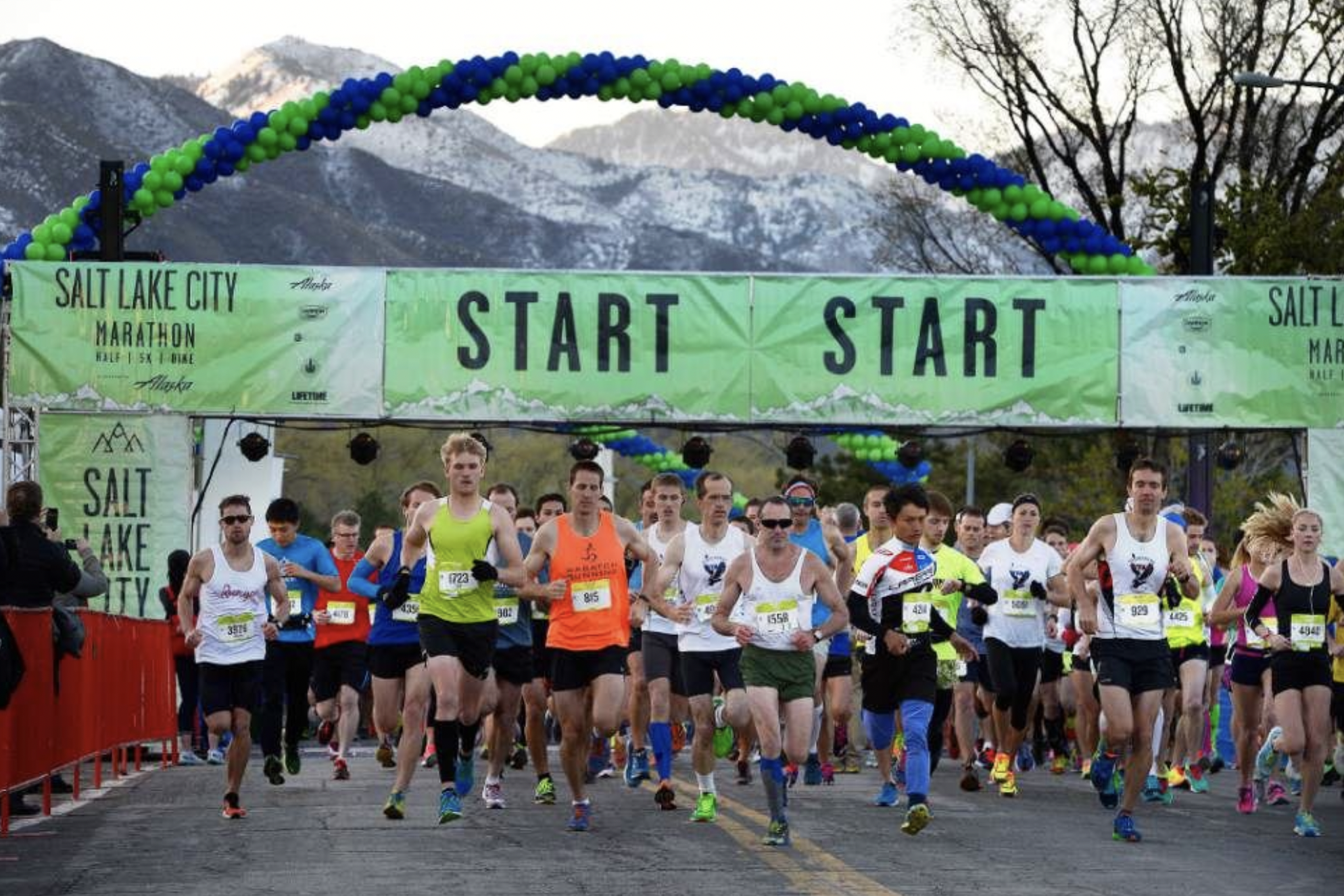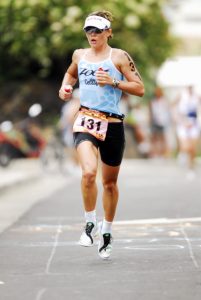There are alot of runners and triathletes out there who are learning how to take in some fuel during events and workouts over an hour and that is great news! The not so good news is that as some of those athletes start going longer than 2-3 hours problems start occurring that didn’t happen before. So what is going on here? Isn’t 1-2 gel packs an hour enough? Do I absolutely have to have an electrolyte supplement? More water? What? Well, the deal is that for events shorter than 3 hours, you can almost fake it on not doing enough. You may feel kind of lousy by the end, by you will survive even though you are running very low on energy, fluid and electrolytes. That is because you should have enough stores of all of those things to make through by doing only minimal amounts of eating and drinking. But…especially after the 3 hour mark…EVERYTHING CHANGES! You just can’t keep up with how much you are losing unless you make a SERIOUS effort to eat and drink more.
While it is true that you are hopefully getting about 50%-60% of your fuel from fat during longer,slower events, you are still blowing through quite a bit of carbohydrate. Most any runner or triathlete will still be using a MINIMUM of 125 grams of carbohydrate an hour. Then, in the case of a Half-Ironman triathlon, the fastest athletes can burn over 200 grams.per.hour! And since we only have about 400-500 grams of carb stored in our muscle tissue and liver, it is easy to see how quickly you will start running out even if you are eating some fuel. Yeah, do that math for a second. “Let’s see…I take 2 gels an hour or one pack of Clif blocks so that is about 50 grams of carbs I eat in a hour. Okay, well if I am blowing through at least 125 grams, but probably more like 150-175, then I am running an hourly deficit of about 100-125 grams. So by the 3 hour mark, I will have used 300-375 grams of carb and running very very low in fuel and by the 4 hour mark, I will be done!” Yep, all those feelings of being light-headed, sick to the stomach, heavy legged, cranky, crampy, slowing down and feeling like you have been hit by a bus somewhere between the 2 and 3 hour mark does not always have to be the case. Does this ring true to anyone? Is it worth trying more?
(Notice here the picture of Mirinda Carfree holding 2 gel flasks full of 100 grams carb each while on her way to running a 2:56 marathon at the end of Ironman Hawaii 2009)
What To Try in Workout Before Racing
The easiest thing to do is think of your nutrition solely on an hourly basis. What do you need per hour? That will take some experimenting, but the following will help get you started on learning what to do without causing GI stress.
- Do not worry about eating for the first 30-45 minutes. All you need during that time is some water.
- After that first 45 minutes, start eating and drinking every 15 minutes.
- Even with women as light as 135 pounds, start teaching your body to eat AT LEAST 75-100 grams of carb per hour. Try the lower end if you are running/biking in Zone 2 conversation pace. Make sure to increase immediately to 100 if you are capable of racing in Zone 3 during an elite level 3 hour marathon or half-Ironman.
- For Men, start with 100 grams and consider trying to work up to 150 grams especially for events over 4 hours like a full Ironman where the bike leg will allow you to easily take that much.
- Keep 95% of carb intake in the form of a gels,blocks or liquids. Remember to wash all gels and blocks down with 6-8 oz of water.
- Pieces of solids like grapes, bananas, pretzels and etc do help some athletes.
- Some heavily flavored or syrupy drinks cause some people problems, but that does not mean you still can’t eat. Just switch to something more lightly flavored.
- Make sure to read all labels so you know how much you are getting. This is especially true with electrolytes. Some products have a pretty good amount while some NOT.AT. ALL!
- You need to consume at least 500 mg of sodium (+other electrolytes) an hour. In extreme condition or for heavy sweaters, that may increase to 1000 mg. Read those labels and take electrolyte caps, tabs or drop if necessary.
- If you are taking in the right amount of food every hour, then the water consumption(24-32 oz/hour) usually works itself out since you will be drinking every time you eat or you are using a carb drink as your fuel anyway. But double check yourself anyway.

Putting It All Together
In order to get it right on the day of your race, you have to be disciplined enough to get all the math worked out in your head and then executing and experimenting with the plan during workouts. There are so many different possibilities of how to get it all in that it would be a pain to list all the choices. Reality is that between running, triathlon and ultra-running, each events has different restrictions on what you will be able to take with you, what will be available on the race course, how hard you will be able to go and what your stomach will be able to handle given the activity. It is easy to say that you will be able to take in more on a bike, than during a run. That is why it will be up to you to nail down what works. Make sure to use the highest quality products that you can and feed your body well. Your body and mind will thank you for it come race day.
Related Articles

